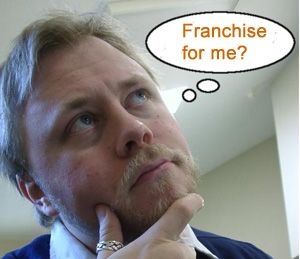5 things every franchisee should remember
Friday, October 28, 2011
1
comments
After checking out the various brochures, select one franchise concept. Then communicate with the foreign franchisor and get more information. Pay particular attention to the basic terms and fees of the master franchise for the Philippines and the steps to pursuing the application process. The application process varies depending on the franchisor, but the following steps are basic:
1. The Qualification Form. Be honest and forthcoming when filling in this form. Franchisors do background checks.
2. A Visit to the Franchisor’s Head Office. You will have to meet the franchisor face to face to determine your compatibility. Most master franchises have a life span of 10 years or more. Can you work with the franchisor that long? During your visit, request a copy of the Unified Franchise Offering Circular from the US franchisors. These documents contain very important facts about the franchisor.
3. Memorandum of Understanding or Agreement. This document indicates a level of commitment to do business between you and the franchisor. The franchisor normally will indicate payment of a certain percentage of the license fee. If at this point you have even the slightest doubt about getting the franchise, don’t sign the MOU. Franchisors accept the reality that, sometimes, a franchisee needs time to come to a decision.
4. The Business Plan. In the business plan, you—the applicant—map out the strategies for developing the franchise in the Philippines. The franchisor usually provides the format. The business plan and market study should provide you with the initial indicators of the success and viability of the franchise concept.
5. The Master Franchise Agreement. The franchisor normally will give you enough time to review the Master Franchise Agreement. This document indicates the terms of your relationship in the coming years, and may not be amended except through mutual consent. Don’t be intimidated by the number of pages—usually 45 or more—but read through the agreement carefully, and then write down your comments. Get a lawyer familiar with international franchising to review the document. He should be able to translate legal jargon into layman’s language, and make sure the agreement complies with Philippines
source: entrepreneur.com.ph



